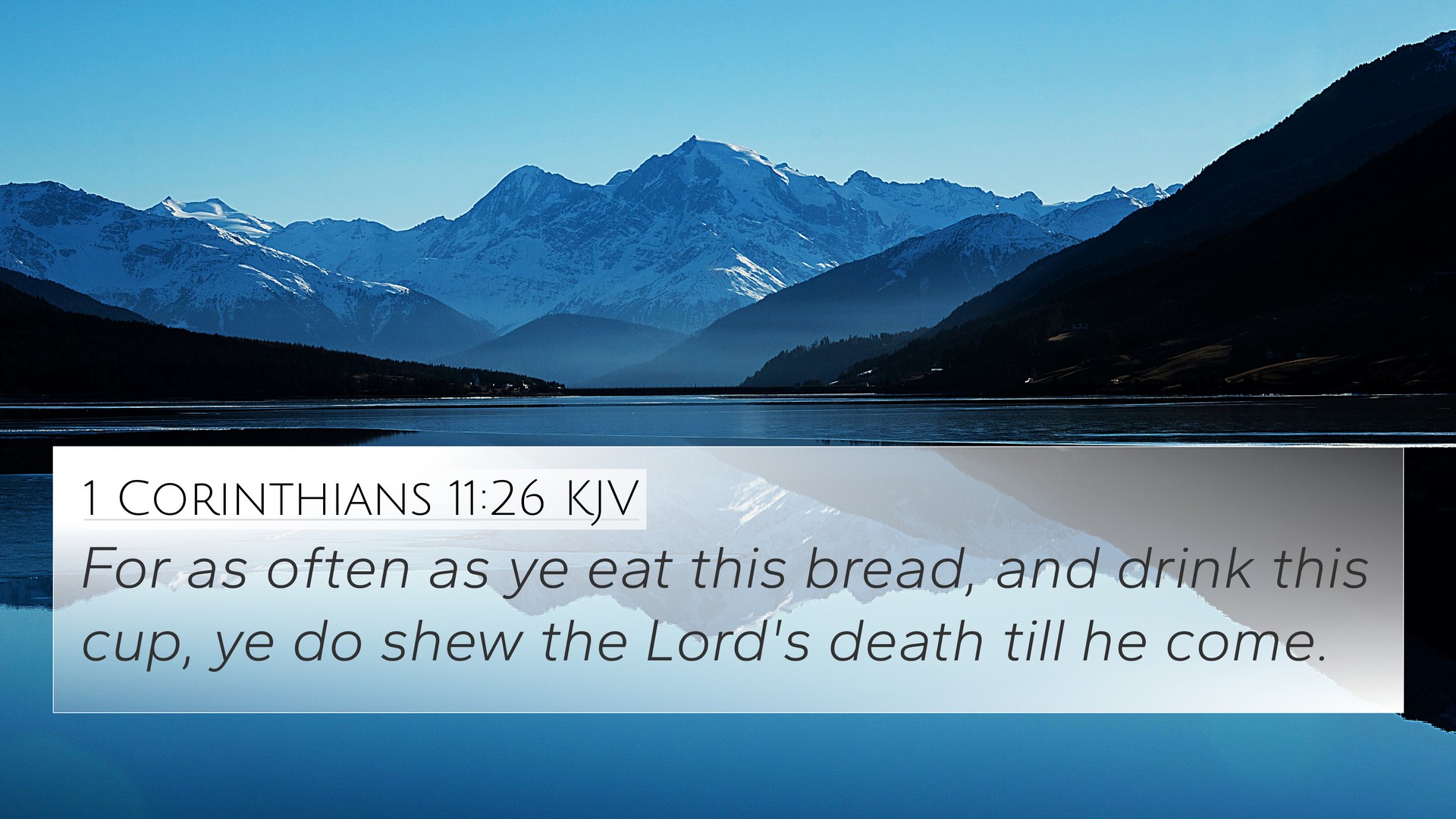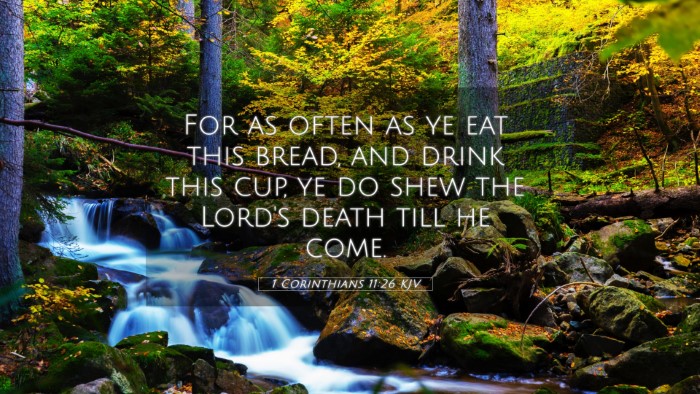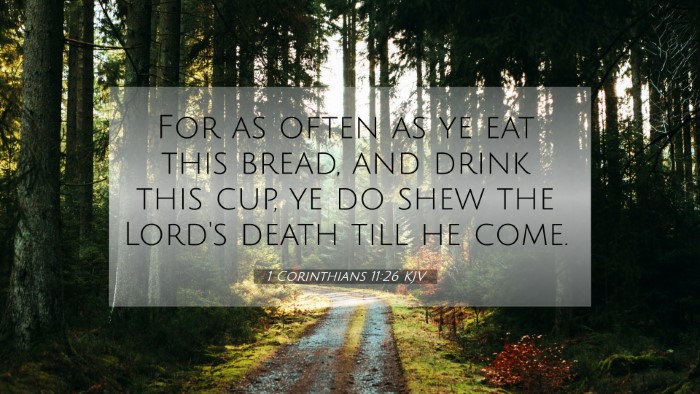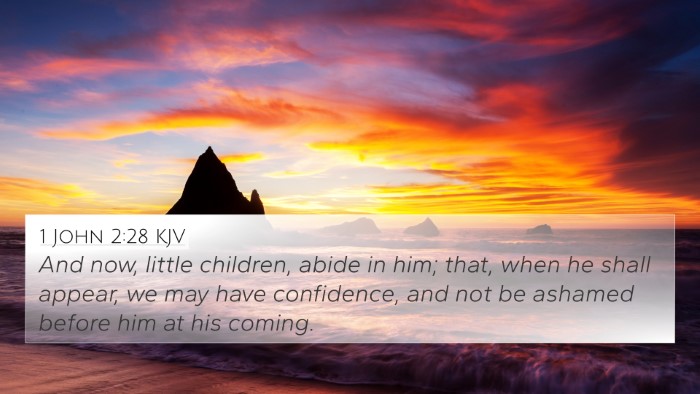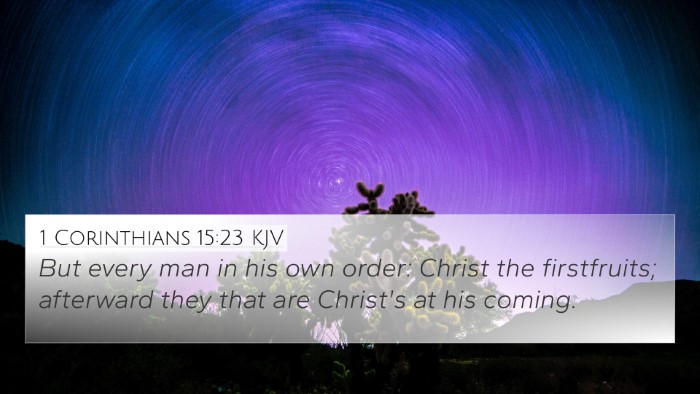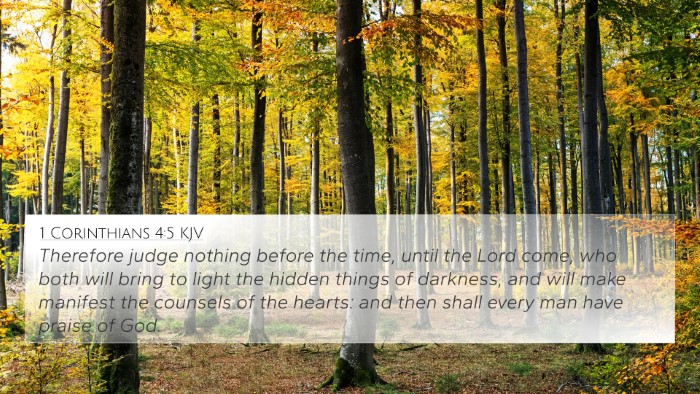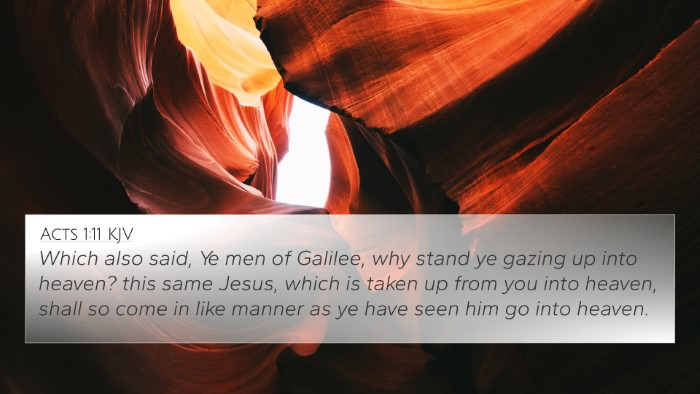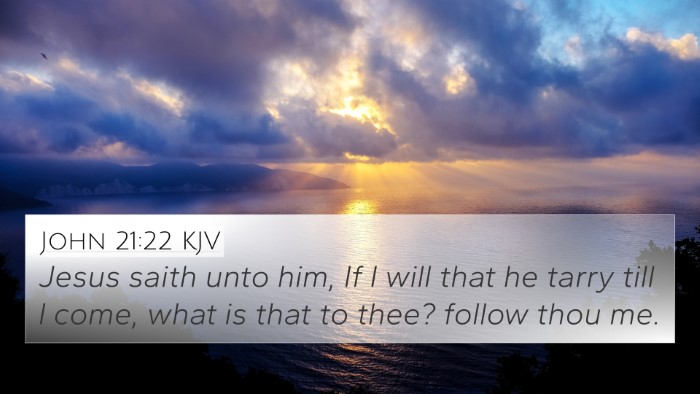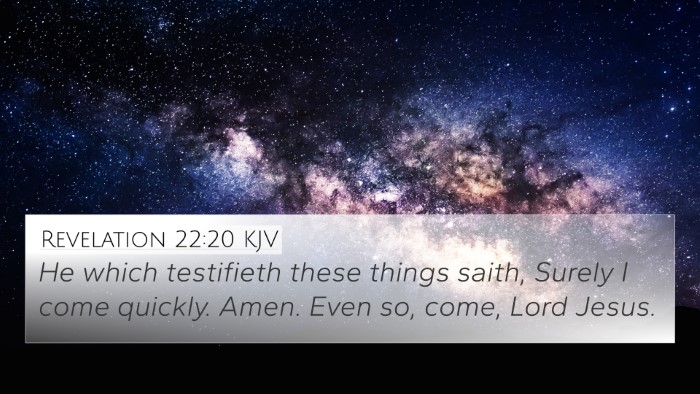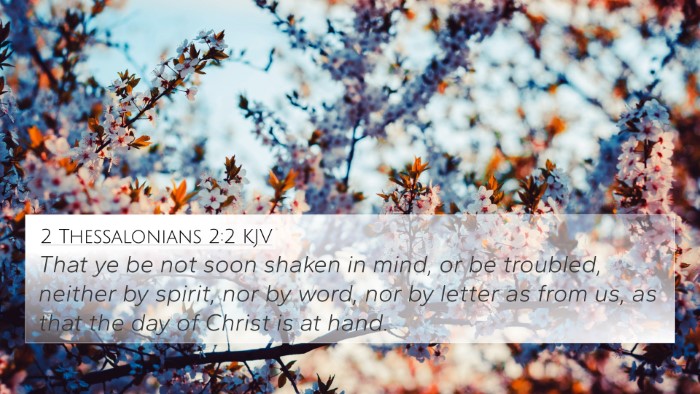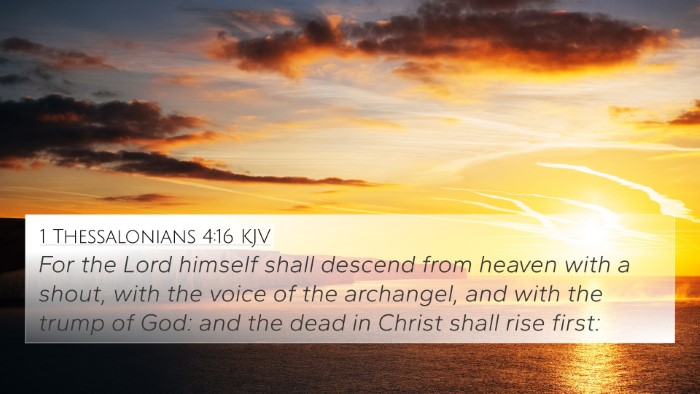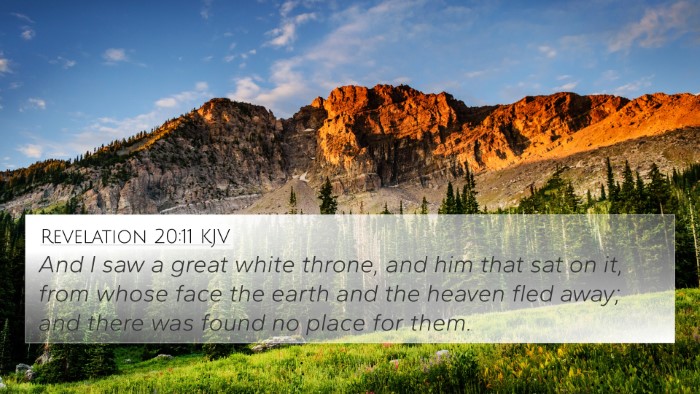Understanding 1 Corinthians 11:26
Verse: "For as often as you eat this bread and drink this cup, you proclaim the Lord's death till He comes."
Summary of Meaning
This verse encapsulates the significance of the Lord's Supper (Communion) in Christian practice. It emphasizes the act of remembrance and proclamation of Jesus Christ's sacrificial death, which is central to Christian faith. Each time believers partake of the bread and cup, they are actively participating in a declaration of their faith and the anticipation of Christ's return.
Detailed Insights from Commentaries
Matthew Henry's Commentary
Henry stresses the act of remembrance, noting that the bread and cup are symbols intended to inspire reflection on Christ's sacrifice. He highlights that the sacrament serves as a public testimony of faith and reminds believers of the hope of Christ’s second coming. The ongoing practice of Communion is thus both a reminder of past events and an expectation for the future.
Albert Barnes' Notes on the Bible
Barnes emphasizes the act of “proclamation” in this verse, arguing that partaking in Communion is a way to communicate the message of the Gospel. He notes that this proclamation involves declaring not only Christ's death but also the implications that come with it—namely, forgiveness, redemption, and the promise of eternal life. The communal aspect also reinforces the unity of believers in Christ’s body.
Adam Clarke's Commentary
Clarke elaborates on the historical context of this practice, pointing out that the early Church used the Lord's Supper as a means of spiritual nourishment and community bonding. He elaborates that the act of eating and drinking is to be conducted with reverence, recognizing the significance of what these symbols represent. Clarke emphasizes the need for spiritual preparation before participating in Communion to reflect the solemn nature of the ceremony.
Cross Referenced Bible Verses
- Luke 22:19-20: "And He took bread, gave thanks and broke it, and gave it to them, saying, 'This is My body given for you; do this in remembrance of Me.'"
- Matthew 26:29: "But I say to you, I will not drink of this fruit of the vine from now on until that day when I drink it new with you in My Father’s kingdom."
- 1 Corinthians 10:16: "The cup of blessing which we bless, is it not the communion of the blood of Christ? The bread which we break, is it not the communion of the body of Christ?"
- John 6:53-54: "Then Jesus said to them, 'Most assuredly, I say to you, unless you eat the flesh of the Son of Man and drink His blood, you have no life in you. Whoever eats My flesh and drinks My blood has eternal life...'"
- Romans 5:6: "For when we were still without strength, in due time Christ died for the ungodly."
- 1 Thessalonians 4:16-17: "For the Lord Himself will descend from heaven with a shout, with the voice of an archangel, and with the trumpet of God. And the dead in Christ will rise first..."
- Revelation 19:9: "Then he said to me, 'Write: Blessed are those who are called to the marriage supper of the Lamb!'"
Thematic Connections
This verse stands at the intersection of memory, proclamation, and expectation. It connects the themes of sacrificial love, communal worship, and eschatological hope. As we analyze this verse alongside others, we notice patterns of remembrance and anticipation that weave through Scripture, beckoning us to view the Gospel in its totality.
Linking Bible Scriptures
The connections between these verses highlight a continuity of themes throughout the New Testament, particularly the significance of Christ’s sacrifice and the expectation of His return. This can deepen the understanding of Christian practices like Communion and aligns with the broader narrative of salvation through Christ.
Practical Applications
Participating in the Lord’s Supper with the understanding that it is both a remembrance and a proclamation can enrich the believer's spiritual life. It serves as a reminder to live in a way that reflects the teachings and sacrifices of Christ, maintaining a heart posture of gratitude and anticipation.
Conclusion
1 Corinthians 11:26 offers profound insights and instructions regarding the Lord's Supper, intertwining themes of remembrance, proclamation, and hope. Through cross-referencing related Scripture, believers can enhance their understanding of this ordinance's importance in the life of the Church today.
SEO Keywords Utilization
This analysis of 1 Corinthians 11:26 ties together various Bible verse cross-references and illustrates the connections between Bible verses. By employing a comparative Bible verse analysis, believers can appreciate the thematic Bible verse connections surrounding the practice of Communion and its implications for Christian faith.
